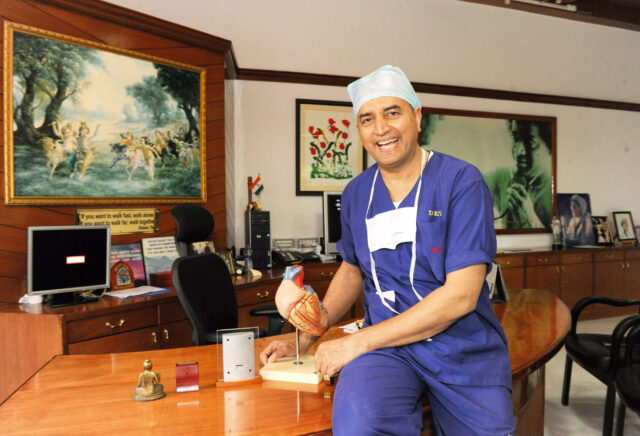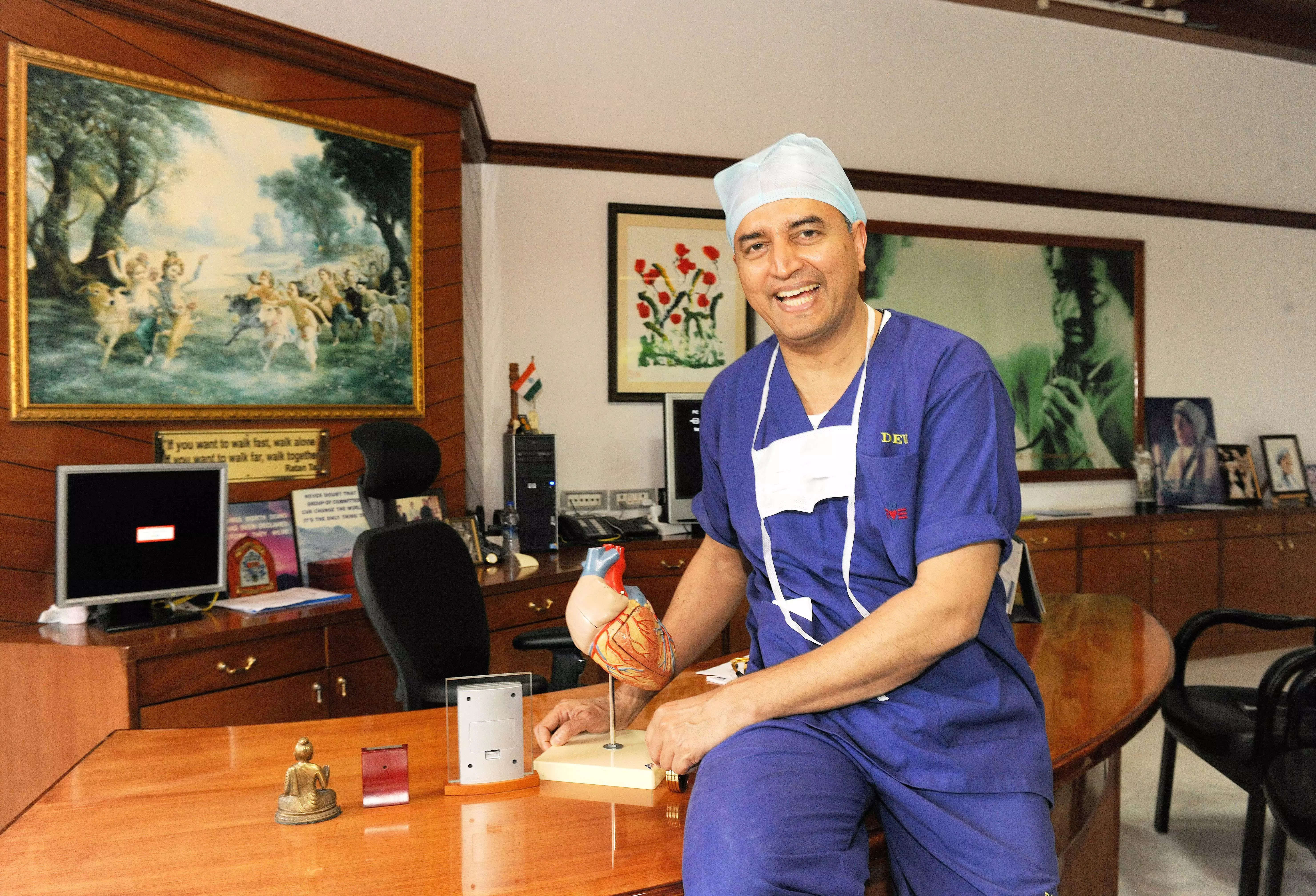
What made NH enter the insurance business now?
We were keen to get into health insurance many years ago, but those days only big companies could get the license. So I suggested the idea to the Karnataka government. I said even if 4.5 million farmers pay Rs 5 each and the government could re-insure, we could run an insurance scheme. That is how Yeshasvini was born. Back then, 1.3 million farmers underwent surgeries.
Today, if a heart surgery costs, say Rs 50000, still half of India’s population cannot afford it. If someone earning a monthly salary of Rs 20,000 – Rs 60,000, were to keep either of parents in ICU for three days, their entire savings are wiped out.
Why are most people outside of health insurance?
Health insurance is not very popular in India due to conflict of interests. There is a trust deficit between hospitals, patients and insurance companies. Insurance data says not even 5% of the insured are diabetic? That is impossible because insurance companies rely on people’s declaration. They don’t insist on preventive health checkup and disallow the claim after hospitalization. Hospitals follow different tariffs for cash and insurance patients, too. If I am a hospital and also run an insurance company, there is no conflict because I am going to pay for it. About 16% heart surgeries done in India are done by us (NH). If I am only a hospital, my business interest lies in people falling sick. But if I am also an insurance company, I make sure patients don’t fall sick.
You cannot predict a fire or accident, but heart attacks are predictable 90% of the time. In an educated city like Bengaluru, a few thousand middle-aged women have early stage breast cancer. If detected, a small surgery can cure that. But they don’t go for a preventive health checkup. We are practicing 21st century healthcare with an 18th century mindset.How does your pilot Aditi scheme work?
We will do preventive health checkups at our cost. It is possible to monitor people’s health 24×7 and we will do it. If someone is diabetic, we will make sure we control it. If someone (insured) develops a sudden health concern, he or she can tap on the app. Doctors, with the data at hand, would address concerns and prescribe medicine, if necessary. We have launched the scheme in Mysuru, and will expand into other cities like Bengaluru, Delhi and Kolkata in the coming days.Initially, we will cover families of four members with the oldest member being 60 years of age. We will increase the age limit as we go along. Premium will change according to the age and health profile.
How much capital are you allocating?
We have invested Rs 100 crore and set aside another Rs 100 crore. Funds are not an issue. All this has happened thanks to the IRDA. We thought we would never get a license and started investing in a few insurance startups. While we thought it (license) would take two years, the IRDA gave us a license in four months.
Your offer looks disruptive…
There is a road for every company. I am very optimistic that eventually everyone will have some sort of health insurance. We are focussing on a segment that is close to our heart. We are also the first hospital group to enter the insurance business.
How can a government-push help?
The government will have to look at options such as introducing a tax-free health saving account, which is popular in the US and Singapore. I have also been telling wealthy families to consider health insurance while planning a gift to someone or part-fund insurance premium to their employees. No government can pay for the healthcare of citizens. People will live longer. We have to make low cost insurance popular.
What is your view of government-funded healthcare?
Government-funded public healthcare runs well in countries with small populations. The moment the population exceeds 15 million, it tends to break down. That is why English is in distress now. We are spending hardly 1.5% of our GDP on healthcare.
Health insurance premium attracts 18% GST…
I am confident they (the government) will change it. People should be encouraged to go for health insurance. We will also take it up with the right people.
What are your suggestions to the NDA regime which has entered its third term?
We have to increase the number of medical seats. Many years ago, admissions to both engineering and medical courses were messy. But today, an oversupply of seats has made engineering admissions scandal free. But medical colleges are built like a white elephant with 20 acres of land and Rs 600 crore in investments. In the Caribbean, which trains doctors for the US, you can buy a medical college with Rs 14 crore. Unless we change this, children from poor families cannot become doctors. Outstanding doctors across the world with magic in figures have come from deprived backgrounds. They have the fire in their belly to excel.
How can the government change this?
In the past eight years, the MBBS seats have doubled. Now we have 1.10 lakh MBBS seats. Post graduate seats have also doubled. When India plans doctors, nurses and technicians, the government will have to look at the global needs. There is a shortage of 80 million healthcare workers globally. No single country has plans or capability to fill up this gap. In India itself, we have a shortage of two million doctors. Ironically, 25,000 Indian students go every year to China, Russia and Ukraine to become doctors. They spend about Rs 13,500 crore annually. Only a fifth of them clear the exams because the infrastructure in many colleges there is poor.
There are thousands of super-speciality hospitals that conduct PG training under the NBE (National Board of Examinations in Medical Science). Give us 100 students every year. Let the government decide and collect the fee and pass on to us. give us. They will write exams with other students from conventional medical colleges. If you can trust us to operate hearts and brains, can’t you trust us to train MBBS doctors? In addition, there are 710 medical colleges. Give them 100 seats each and attach them to district and taluk hospitals. You will get an additional 71,000 seats at no extra cost. These government hospitals will also become vibrant.
Many eminent doctors cannot teach because of the way the Medical Council of India’s (MCI) has defined a faculty. The claims of shortage of teachers will vanish the moment MCI tweaks this definition.




































